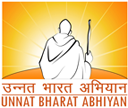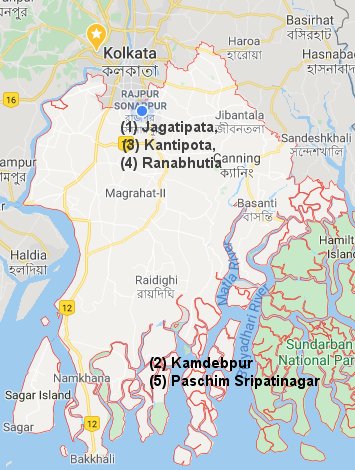:: Unnat Bharat Abhiyan ::




About UBA Cell
Unnat Bharat Abhiyan (UBA) is a flagship programme of the Ministry of Human Resource Development (MHRD), Govt. of India, with the intention to enrich Rural India. This mission is targeted to use the knowledge base and resources available in the higher technical institutions to bring in transformational change in the rural development process. Institutionss through faculty and students will carry out studies of living conditions in the adopted villages, assess the local problems and needs, and to improve the quality of rural life through innovative and affordable technological interventions.Netaji Subhash Engineering College (NSEC), Garia, Kolkata, WB, is one of the Participating Institute (PI) under Unnat Bharat Abhiyan mission and mentored by Indian Institute of Technology, Kharagpur (IITKgp) as a Regional Coordinating Institute (RCI). As a part of UBA, Netaji Subhash Engineering College has adopted five (05) villages viz. Ranabhutia, Jagatipata and Kantipota near the campus of NSEC and another two villages Kamdebpur and Paschim Sripatinagar at Sudarban in the district 24 Parganas (South), WB. The institute has formed a UBA Cell to carry out the activities of UBA. The Cell comprises of an active working group consisting of motivated faculty and staff members, NSS unit and NSEC-Rotaract Club.
The institute always focused on empowering and encouraging the underprivileged section of the society. Fostering social responsibility lies in taking action through community services and in creating head-on sustainable solutions to local and world challenges. The UBA Cell at NSEC is looking forward to create vibrant relationship with society and keen towards holistic development of these adopted villages by providing knowledge and technological support to improve livelihoods in rural areas.
Major Focus of UBA Cell
- To develop linkage with selective rural clusters and involve in the planning process
- To promote the requisite Science and Technology interventions to improvise and expedite the developmental efforts in those clusters
- To develop competency of the working group by appropriate orientation and training
- To upgrade the capabilities of both the public and private organizations in the society
- To bring in transformational change in the rural developmental process
Functions of UBA Cell
- To engage the faculty and students in understanding rural realities
- To identify and assess the local problems and needs in the adopted villages
- To customize the indigenous technology as per the local needs.
- To devise implementation method for innovative solutions and sustainable development
- To devise process for effective implementation of various government programmes.
Major Areas of Intervention [As per UBA Brochure]
In order to move towards the holistic development of the villages, there are two major domains namely, human development and material (economic) development, which need to be developed in an integrated way.
Human development
- Health
- Education and culture
- Values
- Skills and entrepreneurship
Material (economic) development
- Organic agriculture
- Water management and conservation
- Renewable energy sources
- Artisans and rural industries
- Development and harnessing of local natural resources
- Basic amenities
- E-support (IT-enabling)
From Coordinator’s Desk
The Unnat Bharat Abhiyan Cell (UBA Cell) at Netaji Subhash Engineering College (NSEC) actively targets to use the expertise available in the Institute to improve the quality of rural life through innovative, eco-friendly and affordable technological interventions. NSEC through knowledge-base and resources committed to play an important role in helping and enriching underprivileged peoples of the society to develop themselves. Faculty and students will carry out studies of living conditions in the adopted villages, assess the local problems and needs, workout to bring in transformational and sustainable changes in the rural development processes. Some of the major issues for improvement are skill development for unemployed youth, quality of school education, women empowerment, agriculture, sanitation, healthcare, renewable energy use, and self-reliance.
Students joining this project can develop behavioral interactive skills and bring solution of real-life problems faced by the communities in a spirit of mutual benefit. Students also earn credit points as per the curriculum for mandatory additional requirements. Teachers can learn from local knowledge and wisdom, and can improve the quality of teaching/learning by bridging the gap between theory and practice through community engagement.
Majority of India’s population lives in villages. High levels of illiteracy, inadequate health care and extremely limited access to social services are common among poor rural people. Women in general are the most disadvantaged people in Indian society. The students are hereby encouraged to initiate learning projects with a social impact and incubation of social innovative projects through community-based research works. Being the Coordinator of UBA Cell, I would like to invite all stakeholders to join in this novel initiative for imparting knowledge, technology and useful man-hours to the rural community and contribute to community’s socio-economic improvements.
Contact
Dr. Sukumar Roy
Professor-Dept. of Biomedical Engineering
Coordinator-UBA Cell
E-mail: sroybme@gmail.com, sukumar.roy@nsec.ac.in
Contact No.: 9433408287
&
Dr. Partha Sarathi Pal
Professor
Electrical Engineering
Co-coordinator-UBA Cell
E-mail: pspal@nsec.ac.in


